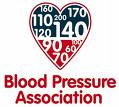
High blood pressure can be a sign of other diseases such as clogged or weakened arteries. Blood pressure is a measurement of the force the heart uses to pump blood through the arteries and the capillaries around the body. The measurement of this pressure is a key determinator of health. The higher your blood pressure rate, the harder your heart has to work, forcing the blood through arteries which may have narrowed or become stiff. The strain of pumping the blood at high pressure can cause vessels to become clogged or to weaken, and this can lead to narrow blood vessels and clots which can damage the heart or brain. This is what doctors call essential hypertension. A safe level for blood pressure is 140/90mmHg (millimetres of mercury).
A small number of people have secondary hypertension, which means there is an underlying cause of their high blood pressure – problems with their kidneys or adrenal glands (which sit above the kidneys). These glands produce hormones that are important in controlling blood pressure. As well as causing heart failure and stroke, high blood pressure can also lead to kidney failure.
Those from a Black or South-East Asian background are more likely to have high blood pressure, as is anyone suffering from diabetes, kidney disease or heart disease. Blood pressure also increases with age and more for those over the age of 75. There are usually no symptoms so the only way to find out is to have a test. Doctors believe that even those with a healthy blood pressure should take steps to lower it further. There are home testing kits available.
Patients who are found to have high blood pressure will also be asked to take blood and urine tests and even an ECG, heart test. If no particular cause is evident patients will be asked to make changes to their lifestyles such as cutting down on salt intake, eating more fruit and vegetables, taking more exercise, loosing weight and cutting down on alcohol.
The two main lifestyle risk factors for high blood pressure are smoking and eating a diet high in saturated fats. Smoking causes arteries to narrow. So if you smoke and have high blood pressure, your arteries will narrow much more quickly. Saturated animal and some vegetable oils, such as palm and coconut oil, increase the amount of cholesterol in the blood, which can clog arteries. Coupled with hypertension, this puts you at a greater risk of heart disease and stroke. We should all cut down on red meat, avoid processed meat products such as sausages, pate and bacon, and eat low-fat dairy products.
Doctors usually avoid giving drugs but the medications for high blood pressure include: Diuretics – (water tablets) such as Thiazide Bendrofluazide, Chlorothiazide, Chlorthalidone, Cyclopenthiazide, Hydrochlorothiazide and Indapamide. These help rid the body of salt and water. Side-effects may include skin rashes, gout (do not take if you have gout) and impotence.
These tablets are often used with other tablets for blood pressure. Beta-blockers: such as Acebutolol, Oxprenolol, Atenolol, Pindolol, Bisoprolol, Propranolol, Sotalol, Timolol, Labetalol and Metoprolol. Beta blockers prevent stimulation of the beta adrenergic receptors at the nerve endings of the sympathetic nervous system and decrease the activityof the heart, relaxing blood vessels. Side-effects can include tiredness,sleep problems, cold hands and feet and asthma (don’t take if you have asthma).
Calcium-channel blockers: such as Amlodipine, Nisoldipine, Diltiazem, Verapamil, Felodipine, Isradipine, Lacidipine, Nicardipine and Nifedipine. These open up the blood vessels making it easier for the heart to work. Possible side-effects are swollen ankles, passing urine during the night (especially in men), swollen and bleeding gums, headaches, hot flushes and constipation. Angiotensin Converting Enzyme (ACE) inhibitors: such as Captopril, Perindopril, Cilazapril, Quinapril, Enalapril, Ramipril, Fosinopril, Trandolapril and Lisinopril. These act on hormones help to open up the blood vessels.
Side-effects can include a dry cough and allergies, with swelling around the mouth and throat. Alpha-blockers: such as Doxazosin and Terazosin. These block receptors in the blood vessels, lowering blood pressure. Side-effects can include stress, incontinence in women and dizziness. Centrally acting drugs: such as Clonidine, Methyldopa and Moxonidine. These work through the brain to lower blood pressure. Side-effects may include drowsiness and nasal stuffiness.
For information and a free booklet on hypertension call the Blood Pressure Association (BPA) on 020 8772 4994.


